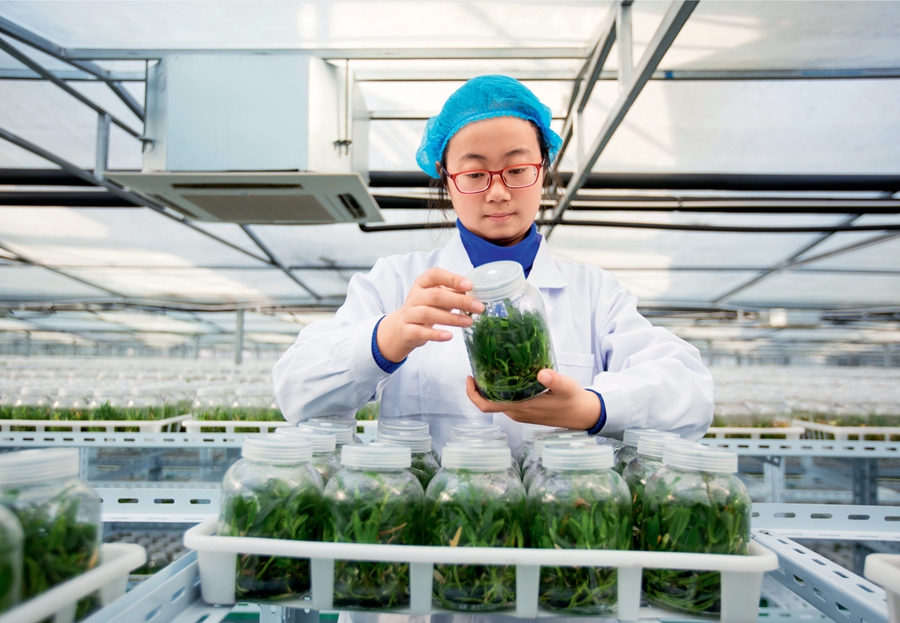Vitalizing China’s Rural Areas
China Today by Zhang Lijuan,April 20, 2018 Adjust font size:
Practices in Agricultural Modernization
To develop rural areas, agriculture holds the key. Therefore, boosting agriculture and bringing the benefits to farmers has topped the agenda of rural vitalization. Efforts should be made to cultivate robust industries, which then can prop up the rural vitalization program. Households and farmers’ cooperatives, together with new business operators like leading agricultural enterprises, can play a major role in promoting industrial development.
Rural areas across the country are exploring ways to propel rural development. In 2011, 18 farming dab hands of Houhou Village in Xingyang City of Henan Province set up the Xintiandi Plantation Specialized Cooperative, and established plants of agricultural production in 50 villages of Xingyang City, providing local farmers a whole package of socialized services involving the whole process of grain production. The cooperative also has cooperation with more than 30 mills, 20 feed factories, and Henan Wanxi Pharmaceutical Co., Ltd., ensuring the timely purchase of farmers’ grain harvests.
With 203 households now participating, the Xintiandi Cooperative has mobilized 12,000 farm households in its neighboring seven towns and townships to plant new species of wheat and corn with yearly output more than 50 million kg.
Dongwangzhuang Village in Xigang Town of Shandong’s Tengzhou City has not been endowed with good farming conditions. Many local farmers have chosen to become migrant workers, leaving their farmland unattended. To boost local agricultural development, Tengzhou Supply and Marketing Cooperative decided to introduce a shareholding land trusteeship model: local farmers became shareholders with their land of 70 hectares, Xigang Farmers’ Service Center contributed RMB 420,000 to the stake pool, and the village collective joined the shareholding scheme with the non-contracted village land, the newly-reclaimed land, and farming facilities. Apart from the minimum guarantee dividend RMB 900-1,000 per mu (1/15 hectare), farmers can also earn dividends from earnings. As of now, the village has consigned all its land to the trustee for management, which brings an annual income increase of RMB 100,000 to the village collective, and a revenue growth of RMB 2.36 million to farmers.
Now, Tengzhou’s practice has been promoted in many agricultural provinces, boosting agricultural yields, farmers’ income, and the cooperative’s earning.

